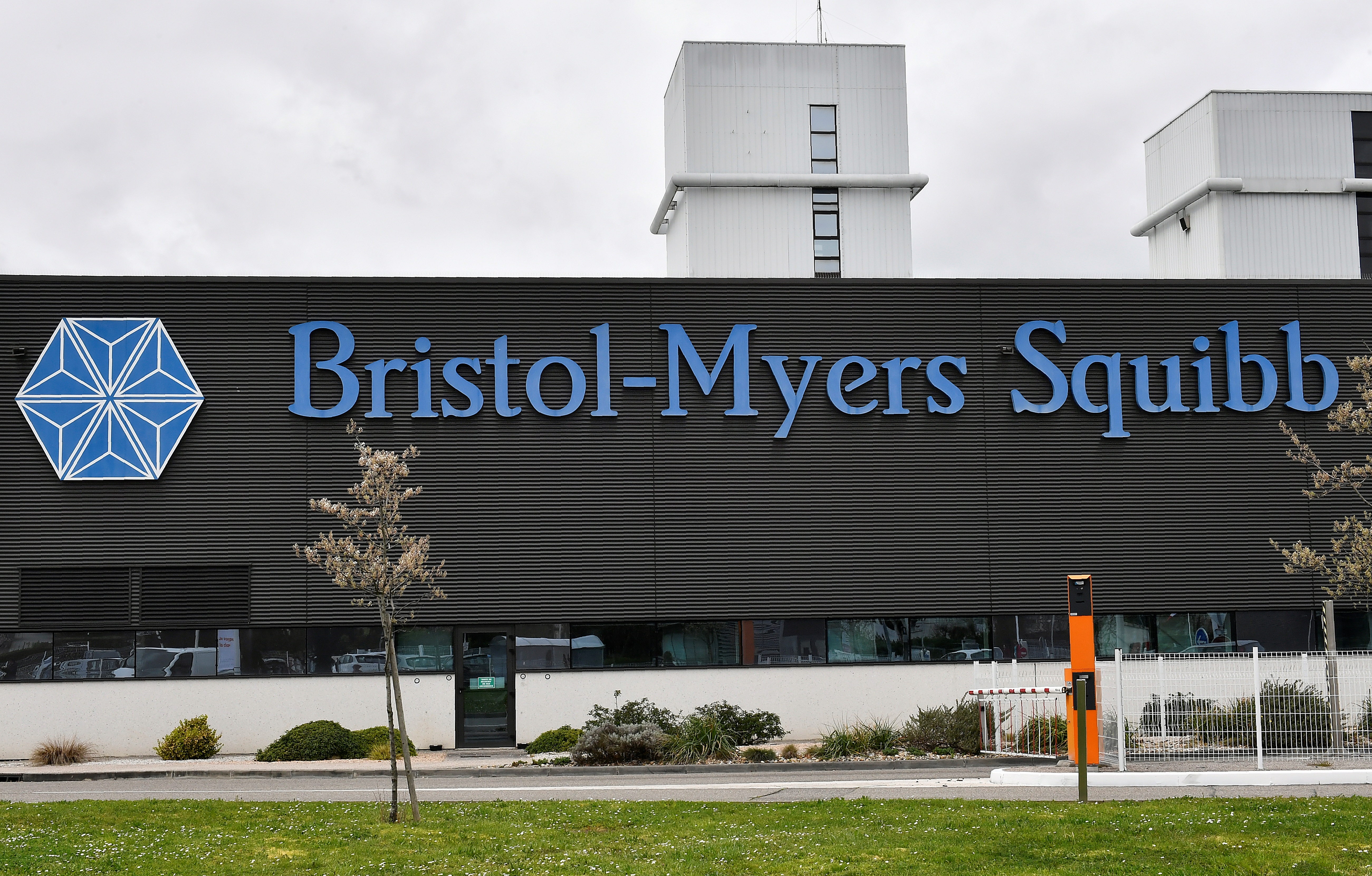Drug maker Bristol-Myers Squibb says to buy Celgene in $74bn deal
Bristol Myers Squibb is buying US biotech firm Celgene in a massive $74 billion cash and stock deal (GEORGES GOBET)
New York (AFP) – New York-based pharmaceutical giant Bristol-Myers Squibb on Thursday announced it would buy US biotech firm Celgene in a $74 billion cash-and-stock deal, instantly creating a rival to the world’s largest drug makers.
The merger plans underscored the companies’ efforts to diversify in the field of cancer treatments, with investors in recent months questioning their growth prospects.
In the deal, Bristol-Myers Squibb gains Celgene’s blockbuster Revlimid treatment for multiple myeloma. The companies said the new entity would also offer nine products with more than $1 billion in annual sales.
Bristol-Myers Squibb Chairman and CEO Giovanni Caforio said in a statement the combined companies would also enjoy “a deep and broad pipeline that will drive sustainable growth.”
They also pointed to oncology, immunology, inflammation and cardiovascular disease as important growth areas.
“We will also benefit from an expanded early- and late-stage pipeline that includes six expected near-term product launches,” Caforio said in the statement.
Other advantages of the deal include a number of new product launches expected in the next 12 months and extensive cost savings. Executives described company assets as “complementary” and with the potential to create “the preeminent global bio-pharmaceutical company,” according to a conference call with analysts.
The transaction follows other recent large pharma deals, including French company Sanofi’s purchase of US hemophilia group Bioverativ for $11.6 billion and Novartis’ $8.7 billion acquisition of rare-disease treatment company AveXis.
Both companies had been the subject of merger speculation, with investors saying Bristol-Myers’s big seller Opdivo, a cancer medication, had lost market share to rival Merck.
Celgene meanwhile faced the prospect of mounting competition from copycat drugs as patents begin to expire.
– Patent expirations on horizon –
The company has said in securities filings that it expects competitors could market generic versions of its Revlimid cancer drug ahead of patent expirations, which Celgene has said will remain in force “at least through 2022.”
Revlimid accounted for $8.2 billion in sales in 2017, nearly two-thirds of overall revenues of $13 billion.
Caforio told analysts the company “conducted extensive due diligence” on the intellectual property questions surrounding Revlimid and agreed with Celgene’s views, adding that the company’s forecasts on the drug were “more conservative” than those of analysts.
A slide in an investor presentation Thursday had some generics hitting the Revlimid market in March 2022, with “full generic entry” in January 2026.
Bristol-Myers’s top two selling drugs last year globally were Opdivo and blood clot drug Eliquis, which together accounted for nearly half the company’s 2017 revenues of $20.8 billion.
Bristol-Myers had 23,700 employees at the end of last year, while Celgene had 7,647.
Caforio will continue to serve in his chief roles while two members of Celgene’s board will hold spots on Bristol-Myers Squibb’s board of directors.
In remarks made before the announcement, Jeffries trading specialist Jared Holz told Bloomberg that Celgene had been “one of the most disappointing stories” among major healthcare firms, with some of its most promising drugs in development not due to be available before 2020.
Under the deal, Bristol-Myers shareholders will own about 69 percent of the new pharmaceutical giant, while Celgene Shareholders will receive one Bristol-Myers share and $50 per share of Celgene.
The companies expect to close the deal in the third quarter of this year, with earnings per share at Bristol-Myers Squibb swelling by 40 percent in the first full year.
Shares in New Jersey-based Celgene surged 25.1 percent to $83.36 in midday trading, while Bristol-Myers Squibb falling 11.8 percent to $45.88.
Celgene in January of last year announced the acquisition of Seattle-based Juno Therapeutics, which developed treatments for lymphoma, and the blood disease biotech firm Impact Biomedicines, for a total of $16 billion.
Disclaimer: This story has not been edited by Siliconeer and is published from a syndicated feed. Siliconeer does not assume any liability for the above story. Validity of the above story is for 7 Days from original date of publishing. Content copyright AFP.


